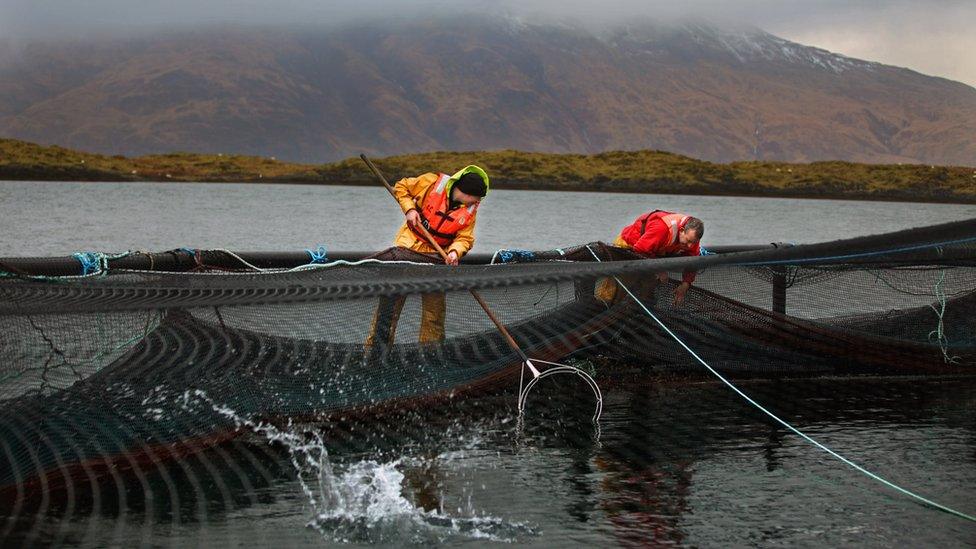Shipshape: when the state steps in
- Published
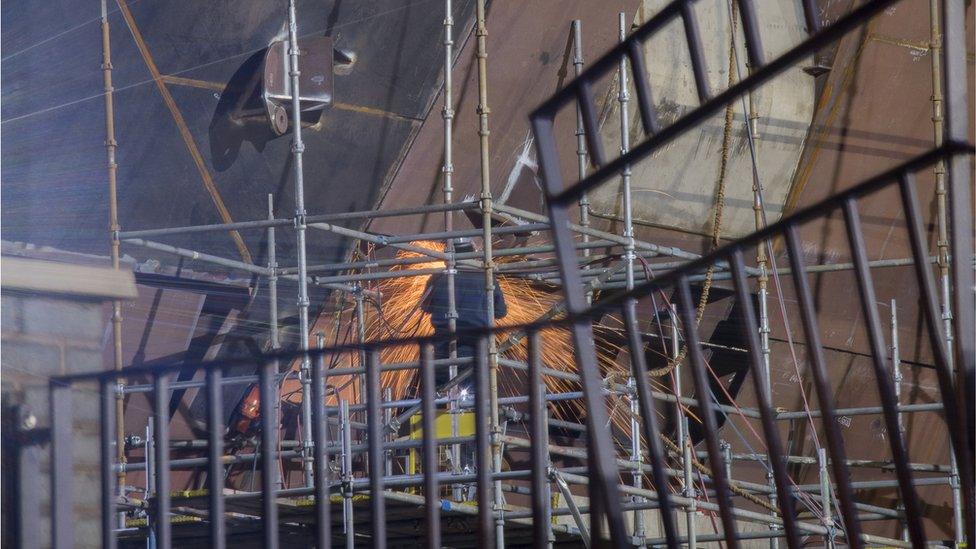
A welder working on the new CalMac ferry Glen Sannox in 2017 - but the ship has still not been delivered
The disputed Cal-Mac ferries contract at Ferguson's shipyard is forcing the SNP government to address one of its central tensions about economic policy.
The case for nationalisation is that government can better steer the economy that way, to meet wider objectives.
The case against is that it exposes taxpayers to more risk, and that it could be used mainly to shore up failing companies and loss-making industries.
State ownership of shipyards on the Clyde is nothing new. They were all nationalised in the 1970s.
Even when in private hands, as in BAE Systems at Scotstoun and Govan now, government can and does call the shots.
But is the nationalisation of Ferguson shipyard at Port Glasgow in the public interest?
Does it fit into the SNP government's view of the economy? Or is it being discussed simply because there is a lack of alternatives?
The prospect has come to the fore because of the dispute over who pays for the cost overrun on two CalMac ferries, currently being built there. The fixed price contract was for £97m. The final cost looks like nearly double that.
Why? It's a long story, and it's disputed. But the main problem seems to be that the ships are being built to a novel hybrid engine system. Diesel gets the ships in and out of harbour, and liquified natural gas is the lower-emissions turbine that powers it between ports.
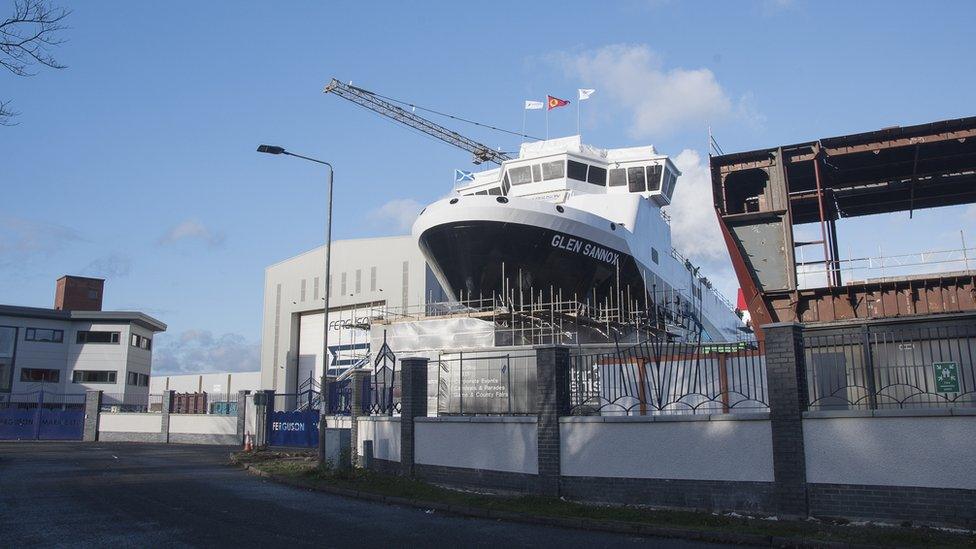
The new ships use a hybrid diesel-liquefied natural gas propulsion system
Set aside for a moment the concerns that such technology is only going to reduce emissions over much longer distances than the Ardrossan to Brodick run for which one of the ships is destined, eventually, or the Uig-Tarbert-Lochmaddy triangle for the other one.
The problem has been the complexity of designing the new technology into the ship, getting it certified as shipshape, and then handling the numerous changes to design that Ferguson's management say have been required by the client.
That client is Caledonian Asset Management Ltd, or CMAL - the Scottish government-owned company that owns and leases CalMac ferries and owns ports as well.
The dispute is whether the client should carry the cost for the changes required. A legal review of the contract is understood to tend towards the CMAL way of seeing things, but there's plenty potential for lawyers to pick over this for a long time to come.
Backlog
The prospect of nationalisation comes in because Ferguson is not far from being insolvent, and its owner - industrial tycoon Jim McColl, through Clyde Blowers Capital - does not want to meet the full cost of that overrun. It's understood that an offer of a compromise has been rebuffed by the Scottish government, which now speaks for CMAL on this.
Nationalisation could come if the two sides agree to an independently-set price, or if the Scottish government salvages from insolvency - the latter option also leaving Jim McColl a long way out of pocket.
So back to those starting questions: what would the game plan then be?
The view at Ferguson's is that this is appealing to Derek Mackay because it's part of a bigger political project. It could fit with a view of the state increasing its role in industry and particularly in transport - taking over the rail franchise, making sure that government owned companies retain the western ferries.
There's the interesting, related question of whether CalMac will take over the Orkney and Shetland ferries in place of the current operator, Serco. Watch this space.
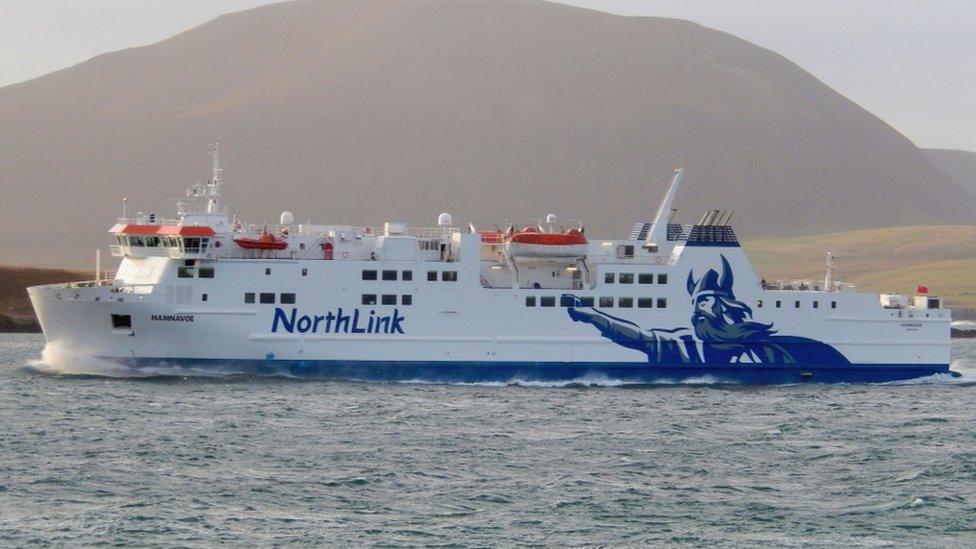
The Northern Isles ferries are currently run by Serco Northlink
It could be, particularly post-Brexit, easier for the Scottish government to place ferry orders with its state-owned yard rather than having to put contracts out to private sector tenders. (Though who can tell what the state aid rules will be?)
There is a big backlog of ferries required for the CalMac fleet, because the current one is getting old and unreliable. There's also a lack of capacity on major routes, because more subsidised tickets have seen demand rise steeply.
Also the idea has been floated this week, of a post-Brexit re-joining of CalMac, the ferry operator, with CMAL, the ferry owner. That split was required under EU competition and state aid law.
Politically, such a view of state and industry would push the SNP into Labour territory, where Jeremy Corbyn's view of the post-Brexit economy is for more intervention by the state, taking control of several public utilities.
But is the SNP as concerned about taking Labour turf as it is about the pushback from Conservatives, to its freer market right?
Frigate order
Tories can point out that state ownership would have left the government facing all of that higher cost for the two ferries now under construction.
There's more to the case against nationalisation than a dislike of state ownership of industry. Doubt is being cast over non-CalMac work, which Ferguson's has been keen to win.
The current management wants to win a share of the Type 31e frigate order for the Royal Navy, bidding with Babcock as part of a consortium.
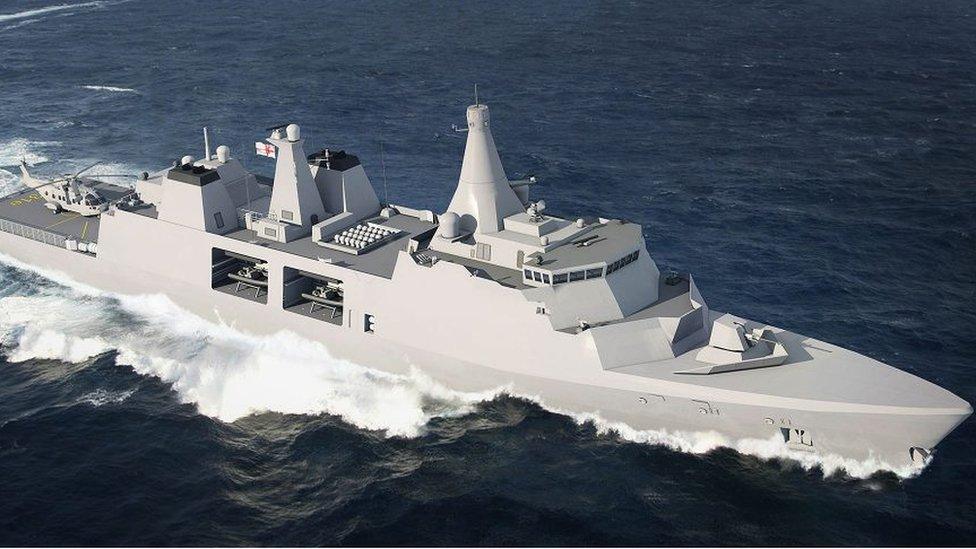
Ferguson is part of a consortium with Babcock bidding to build the Royal Navy's new Type 31e frigate
It's casting doubt on whether that would be possible with a change of ownership to the Scottish government, and a potential change of management as well.
How would the UK Ministry of Defence reckon on placing a contract for new frigates with a Scottish government-owned company? Perhaps relaxed. Perhaps uncomfortable.
A number of other diversified engineering contracts are being pursued under the ownership of Clyde Blowers Capital, and likewise, it's claimed these may be lost.
The two main questions about public ownership: how much capital does this tie up which could be used for other public sector priorities? And does government run a shipyard better and more efficiently or profitably than private management?
The answer to that, for many in Britain, has long been "no". But other countries' governments run a lot of complex industries very successfully, including several that run Britain's railways. And Scottish Water stands up favourably to comparison with English water companies.
Peaks and troughs
You might normally expect trade unions to like nationalisation. They have more leverage over state-owned firms.
But the GMB doesn't sound so keen in this case, until they see what might be involved.
There are 350 workers currently at Ferguson. If the contracts were going better, there could be more. Management reckons it could push up to 700 staff if the order book begins to fill up.
If all the work is for CalMac, that could be managed to retain the workforce, but it might also be vulnerable to peaks and troughs of government procurement.

The Scottish government took over Prestwick Airport - but it has cost the taxpayer millions of pounds
The question highlights a central tension at the heart of the Scottish National Party's view of the economy and the state's role in it.
The government's council of economic advisers includes Jim McColl, taking an entrepreneurial view of business, and Prof Mariana Mazzucato, who has impressed the first minister with her advocacy of a clearer and more prominent role for the state in steering the economy, and taking more credit for its existing role in research and procurement.
Where ministers and the SNP membership are located in response to the nationalisation question is less clear.
What they probably won't want is to link state-owned enterprise with propping up failure and loss-making industries.
The Scottish government has taken a stake in BiFab fabrication yards, it has full ownership of Prestwick Airport, and has taken over Scotland's wave power pioneers, in the hope that their intellectual property can eventually become commercial. The addition of Ferguson shipyard risks that becoming a trend.
- Published9 July 2019
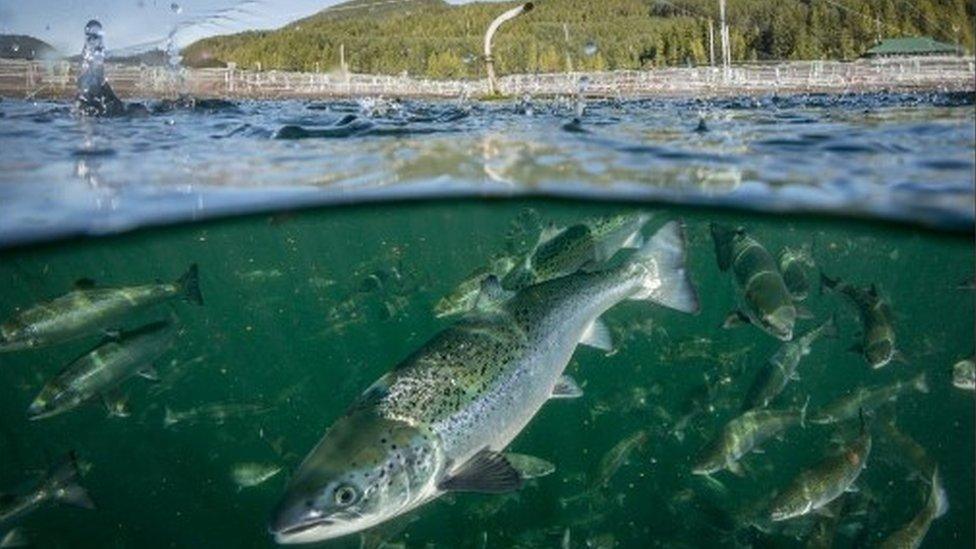
- Published20 May 2019
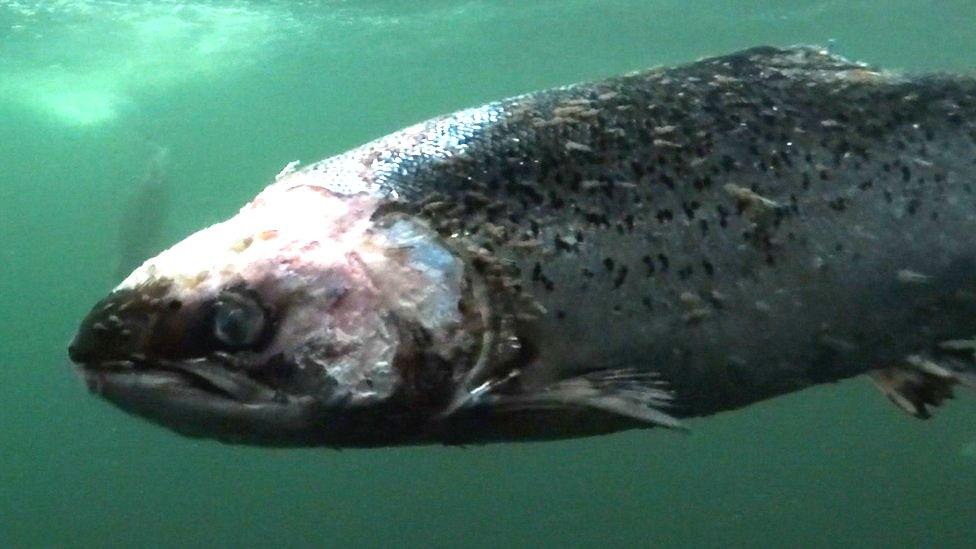
- Published27 November 2018
